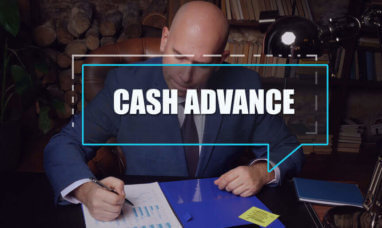Unsecured loans are loans you can apply for without any collateral. Understanding unsecured loans will help you secure on if you need it. These loans come with high interest rates, but the rates and the loan terms may vary depending on your creditworthiness. The absence of collateral may lure you into applying for these loans, but before you do, make sure to stay informed.
Read on for a detailed look at how unsecured loans work, their pros and cons, how to qualify for one, and how the application process works.
Understanding Unsecured Loans
An unsecured loan is a loan you can apply for without putting up any collateral such as a house or car for approval. The lender relies on your creditworthiness to determine the terms of an unsecured loan. Therefore, you need a good credit score to qualify for an unsecured loan.
And since there’s no collateral involved, this type of loan is riskier for the lender. The risk factor comes in because the lender won’t have any assets to confiscate for the outstanding loan balance if you default on your loan. For this reason, lenders tend to impose high interest rates to cater to unforeseen risks, and therefore, you need a relatively high credit score to attract favorable loan terms.
Typically, you can use funds from an unsecured loan to cater to any financial needs such as funding home renovations, weddings, or consolidating other loans. However, some lenders put restrictions as to how you can spend the loan money. Either way, with the right qualifications, you’ll always find a lender willing to support your financial needs.
How Unsecured Loans Work
So, let’s now find out how these loans work.
The absence of collateral means the lender will evaluate your loan application based on your credit history. Here, the lender takes a closer look at your credit history, your income, and any monthly payments that you may have. For this reason, you can expect your unsecured loan application process to be fairly detailed compared to that of other loans.
After analyzing all the vital financial information, the lender then decides whether or not you qualify for an unsecured loan.
If you qualify, the lender provides you with the loan terms. At this particular point, you should go through the terms word by word. Look at the principal amount and see if it’s what you’re looking for. Look at the annual percentage rate (APR) and monthly payments attached to your loan and see whether it’s favorable for you. Are you in a position to pay the stated monthly payments in light of your budget?
And since you’re looking for competitive rates, it’s advisable to seek loan quotes from different lenders. Compare their loan terms and settle for the most favorable one.
It’s advisable to go for an unsecured loan on which you can comfortably make monthly repayments without defaulting.
Defaulting on an unsecured loan damages your credit score, thus affecting your future loan applications. If your credit score drops, you’ll have a hard time qualifying for other loans in the future. Should you later obtain a loan with a lower credit score, you may end up paying high interest rates that end up costing you more in the course of the loan repayment period.
Besides affecting your credit score, defaulting on an unsecured loan may trigger the lender to present a collection agency with your missed payments.
The collection agency then summons you to repay the loan. If the non-payments persist, the collection agency might take legal action against you. A successful lawsuit might order you to repay the loan through wage garnishments. Worse still, the court might allow the lender to place a lien on any of your assets.
Pros and Cons of Unsecured Loans
Pros
-
-
-
- The loan approval is fast, unlike when applying for a secured loan where you may be required to provide additional documents like a land title deed
- The lender cannot confiscate your property in case of default
- With excellent credit scores (720 to 850), you can qualify for loans with rates similar to those of secured loans, sometimes as low as 6%
- Unsecured loans come with fewer borrowing restrictions
-
-
Cons
-
-
-
- Unsecured loans are riskier for the lender; hence they charge high interest rates
- Defaulting on an unsecured loan negatively affects your credit score
- Approval may be difficult
- In case of default, you risk losing your assets if a lawsuit is issued against you by the lender
-
-
Types of Unsecured Loans
Let’s now look at the different types of unsecured loans available in the market:
1. Unsecured Personal Loans
Unsecured personal loans are loans you can use to cater to a wide range of personal financial needs such as home improvement projects, travel, and unexpected medical bills to mention a few. However, some lenders have restrictions when it comes to the use of personal loan funds. So, it’s advisable to check with your lender to ensure your intended use is permitted before applying for an unsecured personal loan.
2. Personal Lines of Credit
If you anticipate that your expenses will spread over an extended period, personal lines of credit, also known as unsecured revolving lines of credit (ReLi), are a good fit for you. ReLi unsecured loans allow you to access funds when a need arises.
3. Unsecured Credit Cards
Unsecured credit cards are a form of revolving loan that allows you to access a certain amount of spending power and calls for monthly payments. With an unsecured credit card, you can use your allocated funds for any purpose with just a swipe of the card.
Other types of unsecured loans include unsecured loans for charities, student loans, peer-to-peer loans, and redeemable convertible unsecured loan stocks (RCULS).
Typically, these types of unsecured loans fall under two main branches, revolving or term loans. A revolving loan allows the user to spend, repay, and spend again over a given period of time until a certain set dollar limit is reached.
On the other hand, a term loan provides the borrower with an upfront lump sum in exchange for repayment in equal installments until the loan is completely paid off.
Where to Get Unsecured Loans
You can get an unsecured loan from either a bank, credit union, or online lender. The loan amount, interest rate, and terms will vary across these lenders.
1. Online Lenders
Online lenders are the most popular lenders of unsecured loans. The application process is relatively simple and fast; it involves submitting basic personal information, after which you get a preview of your loan terms. The preview includes the approved loan amount, annual interest rate, and monthly payments. Once you agree with the terms, you can get your money deposited in your account within a day or two, depending on the lender. These are also one of the types of lenders who offer loans with no credit check.
2. Banks
You can also apply for an unsecured loan from your bank. If you have a solid credit score, you may even get a higher loan amount at a lower interest rate. The only drawback of applying for an unsecured loan from a bank is that you can’t qualify if you have a soft credit pull.
3. Credit Unions
Credit unions usually offer reasonable rates to borrowers, regardless of the credit score. Even if you have a fair to bad credit score (689 or below), you can still qualify for an unsecured loan from a credit union. However, to qualify for this loan, you must be a member of that particular credit union. Being a member means you either live or work near the credit union or are associated with a particular group of people served by the union. You may also be required to pay a small fee and a one-off deposit of up to $25.
How to Qualify for an Unsecured Loan
Here are the top things lenders consider in determining whether you qualify for an unsecured loan or not:
1. Credit Score
Your credit score is one of the key factors in determining whether you qualify for an unsecured loan. If your credit score is higher, let’s say over 700, you can attract competitive loan terms.
Some lenders also consider your credit history. Many of them prefer borrowers with a longer credit history, say, two years or more. The longer the credit history the better.
2. Income
The lender also needs to know your income before giving you an unsecured loan. A stable income shows the lender you can meet your financial obligations, which increases your chances of qualifying for an unsecured loan. Some lenders may even ask for proof of a stable sufficient income, such as a current pay stub.
3. Debt-to-Income Ratio (DTI)
Your debt-to-income ratio is used in determining your loan repayment ability. A lower ratio is always considered better. And although different lenders will have different DTI requirements, most require a ratio not higher than 43 percent.
To calculate your DTI add all your monthly debt payments and divide their total by your gross monthly income. Multiply the resulting figure by 100 to get your DTI.
Applying for an Unsecured Loan
If you feel like an unsecured loan is a perfect fit for you, here’s a simple application guide to follow:
-
-
- Determine the amount you need: Only take what you need. Don’t be tempted to take more, even if the lender approves a higher amount.
- Research the top lenders: Top lenders include online lenders, banks, and credit unions.
- Compare loan offers from different lenders: Different lenders have different loan offers. Therefore, it’s good to compare their interest rates, loan terms, and any special features.
- Submit your application: After choosing your preferred lender, the next step is to submit an application request. You may fill out a formal application form either online or in-person, depending on your lender’s terms.
- Provide required documentation: Additional documents are required upon the lender’s request. This mainly happens if you have a low credit score.
- Accept the funds: Once your loan is approved, the lender will notify you how you’ll receive your funds. If you had applied for a term loan, you’d receive your funds as a lump sum. If it’s a revolving loan, you’ll be able to access your funds as needed.
-
Bottom Line
Unsecured loans come in handy when you have a relatively high credit score. This is because, with a good credit score, you’re likely to attract competitive loan terms.
Borrow only what you need and be careful not to default on your unsecured loan. Doing so may negatively affect your credit score, and in some cases, you may end up losing your assets.
Featured Image: Twenty20








